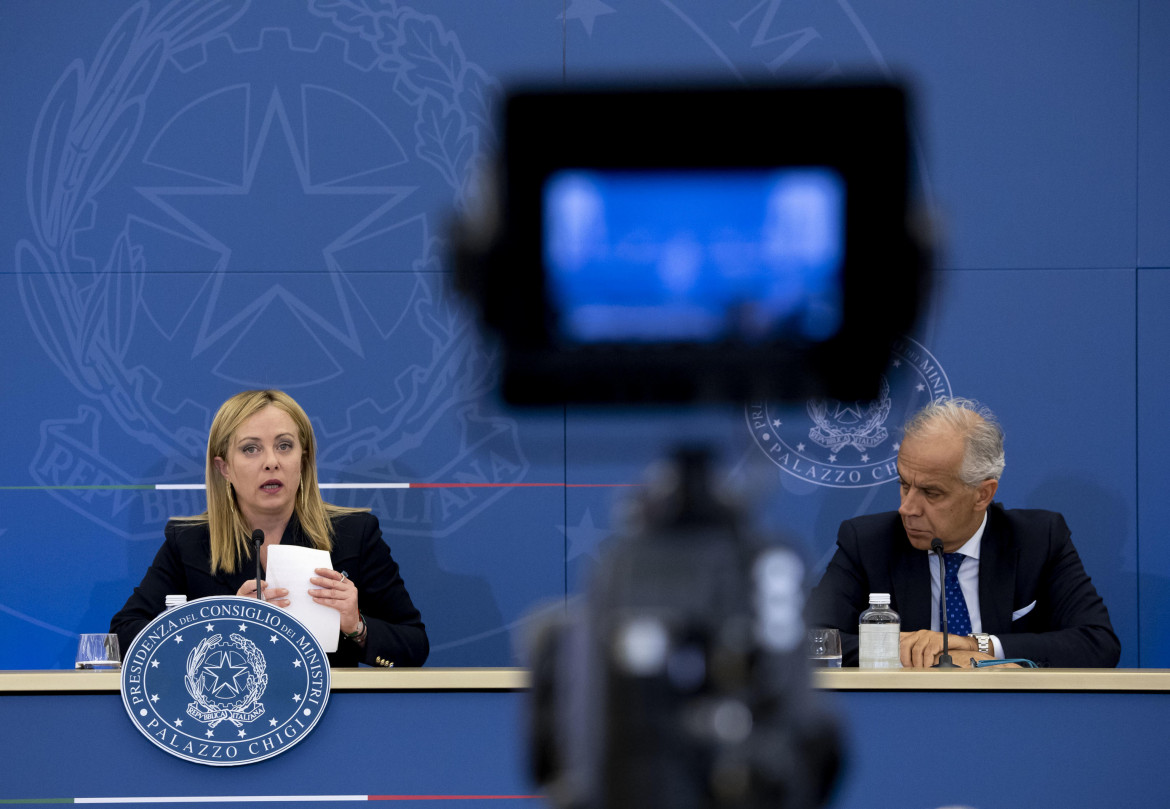Analysis
Meloni wants to ban ‘raves,’ but the opposition sees an attack on protest
Giuseppe Conte accused it of being a 'police state' regulation, while saying he was not opposed in principle to 'targeted' actions to counter illegal raves.

After the text of the proposed decree on the crackdown on illegal raves came out, it didn’t take long for the initial doubts to become grim certainties. After studying the text of the decree, the first act of the center-right government, the first critical voices of the opposition were heard: “The new rules sound like a limitation on citizens’ freedom and a pre-emptive threat against dissent,” wrote PD secretary Enrico Letta on Twitter, who also called on the executive to backtrack and withdraw the measure. Angelo Bonelli from the Greens summed up the unease among the center-left: “Raves have nothing to do with it. Protest demonstrations will be targeted.”
That’s the crux of the matter. Approved on Monday, the decree was published on Tuesday in record time in the Official Gazette, and now the fear is that the measures, officially aimed at stopping illegal music marathons, will be used to curb, or even repress, any and all protests.
And this comes at the start of a cold season which, leaving the summer temperatures aside, promises to be “hotter” than ever. Striking workers, student demonstrations, exasperated citizens burning their utility bills, occupied universities and schools, and even union marches: since Tuesday, everything could be interpreted as a violation of the new regulations, calling for police intervention. Meanwhile, rallies such as the one in Predappio, with around 2,000 Fascism nostalgics celebrating the hundred-year anniversary of the March on Rome, are being handwaved by Interior Minister Matteo Piantedosi as events “that are held every year.”
Given the avalanche of reactions against the new decree, those at the Interior Ministry are trying to put out the fire: “The new norm,” said ministry sources, “does not in any way harm the right of expression and freedom of demonstration enshrined in the Constitution and defended by the institutions.” These words sound like the usual bureaucratic defense, watered-down in meaning to the point of being useless.
The opposition – united for once – is accusing the government’s choice to define a new criminal offense, the “invasion of others’ land or buildings, whether public or private, for gatherings dangerous to public order or public safety or public health.” Offenders will face up to six years in prison and fines of between 1,000 and 10,000 euros, in addition to the seizure of any vehicles or equipment used.
It is precisely the notion of “others’ land or buildings, whether public or private,” that is one of the most perplexing points: “This is such a generic and wide-ranging rule that one will be able to apply it in the most disparate cases and with great discretion. A Putinesque law,” said +Europa deputy Riccardo Magi.
Giuseppe Conte accused it of being a “police state” regulation, while saying he was not opposed in principle to “targeted” actions to counter illegal raves. “But the way they approached it is disturbing,” concluded the Five Star leader. For PD’s Andrea Orlando, the new criminal offense could violate Article 17 of the Constitution, which enshrines the right of citizens to assemble peacefully and unarmed: “This is, therefore, a dangerous norm,” explained the former minister, “not only for rave lovers (who in any case are not criminals only on that account), but for everyone, because of the vagueness of its applicability to concrete cases.”
Exacerbating the situation is also the fact that the new crime also makes it possible for suspects to be subjected to wiretapping, because – as the president of the Criminal Law Chambers, Domenico Caiazza, pointed out on Tuesday – the maximum sentence is set at more than five years.
The PD’s Debora Serracchiani had sharp questions for the head of the Justice Ministry: “But didn’t Minister Nordio want to reduce criminalization (and here we have a new crime, widely applicable), and didn’t he want to cut down on wiretapping (and we will allow more of it)? The message the governing right wing has for the country is clear: we will not tolerate dissent.”
The objections were also shared by Amnesty international, while the Students’ Network described the new decree as a “freedom killer”: “It’s unacceptable to let repression loose in schools, universities and public squares,” said the students, appealing to “government and Parliament to not allow the restriction of the freedoms to demonstrate and dissent.”
Originally published at https://ilmanifesto.it/norme-liberticide-vogliono-solo-colpire-il-dissenso on 2022-11-02
